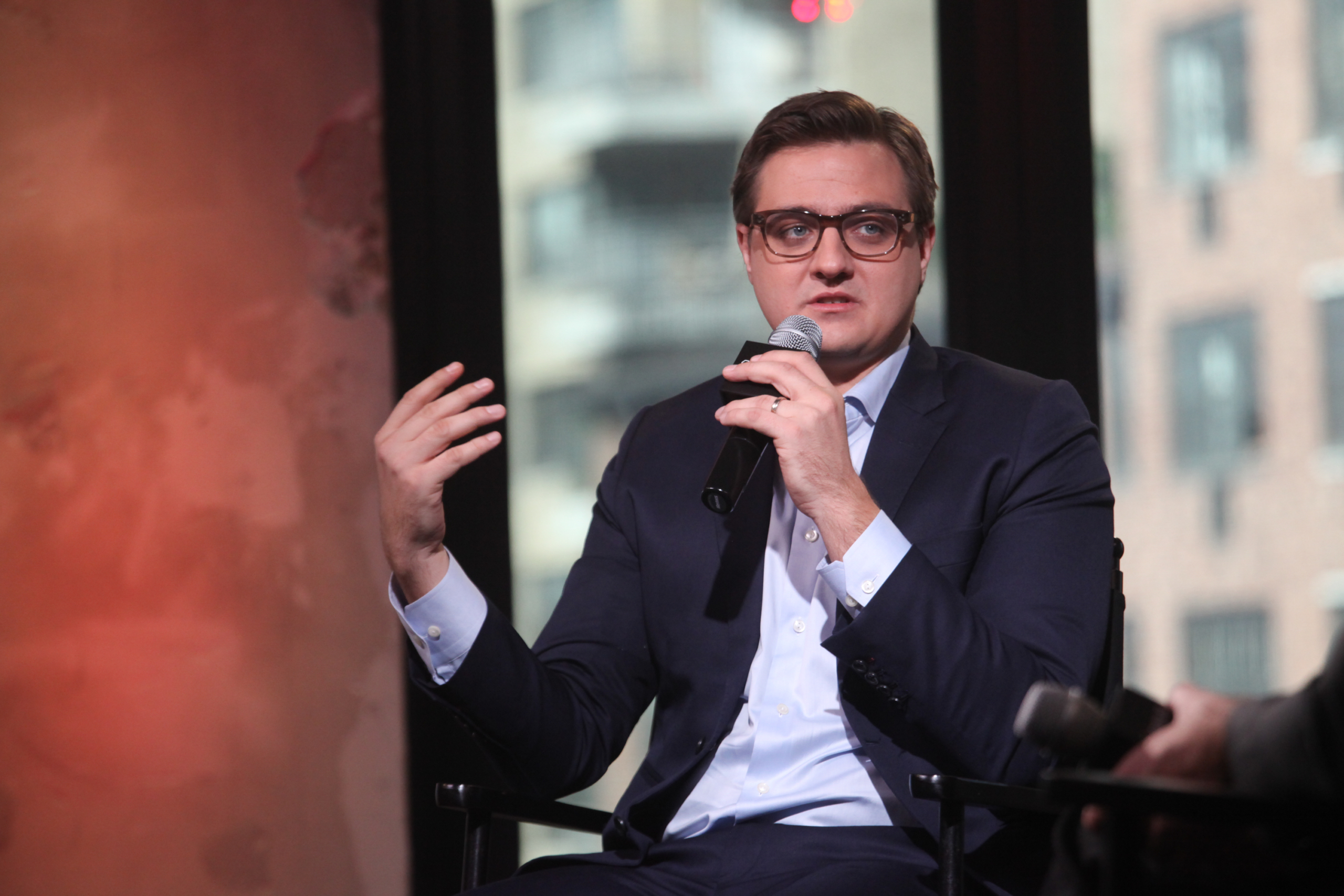The coronavirus response is the latest in a long line of irresistible Trump administration scandals to engage the shock and indignation of the press. It can be difficult for journalists to resist taking the bait, and so the outrage itself becomes the focus of piece after piece; the trainwreck becomes the story, at the expense of informing the public or holding power to account.
On MSNBC, Chris Hayes’s approach to the coronavirus pandemic has demonstrated an alternative, sober path away from outrage-mania. We caught Hayes for a few minutes last week to talk about his strategy.
Your approach to the epidemic has been more focused on the public health aspects, and less on the political aspects.
Right. That’s how I have viewed this.
This is the second time there’s been a big public health story that we’ve done at this magnitude; the other was Ebola in 2014. In 2014, I thought there was a tremendous amount of irresponsible fearmongering and panic. And our guidepost was to listen to people who really know this, public health experts and epidemiologists, and take their lead. And in the case of Ebola, there was a mismatch in that the people who were knowledgeable were saying, “Look: this is a very difficult disease to transmit.”
So in the case of Ebola, the public fear was bigger than experts’ fear.
Yes, and now [in the case of the coronavirus], I think, it’s a little reversed. I’m talking to people who worked on Ebola, I’m talking to epidemiologists and public-health experts—my father was at the New York City Department of Public Health for years, so I’m sort of familiar with public-health people, and the way it works—and there’s much more concern and alarm among them than is being reflected outside. And that’s because the response, so far, has been bad.
We’re also in a situation where there’s been a series of countries that have gone before us, and their ability to deal with this has varied quite widely. If you look at Japan or South Korea, where the response has been aggressive, versus say, Iran, where the response has been pretty disastrous—or the first two weeks of transmission in China, before they really turned things around—there are lessons here about what you need to do, and how you need to do it.
The dilemma is that basically every government wants it to not be that bad. They make a bet on containment, which is, you identify people who are coming from infected areas, you try to isolate them and use case tracing to keep the number limited. But what has happened in every country eventually is that you get community transmission, and [once that happens], then the containment horse is out of the barn.
And then you need to do things to slow transmission. The problem is that doing those things is really disruptive. I understand that policymakers are reticent to do things like close schools; that is an enormous disruption in people’s lives!
Right now, all the signals from the Trump administration, and Trump personally, have been the wrong signals. The cases are going to “go to zero”; that’s a thing he said. That it might go away, like a miracle. But the government has to look at the risk and attack the risk as a systemic issue.
You’ve never been in a theater when there was a fire, right? But there are exit signs and fire codes for a reason. Because if you’re managing a city like New York City, with eight million people and hundreds or thousands of theaters, eventually you’re going to get a fire. So you manage the problem from the perspective of systemic risk. It’s the reason we have seatbelt laws. This is that kind of problem.
The fear has sprung up in such a way that really harms public discourse, especially during an election season and with the turmoil in the markets. It’s a period of extremity and danger.
I don’t want to play into that.
People should wash their hands, and they should follow the guidelines of policymakers at the local level. If you’re in Seattle, there’s going to be a different set of guidelines than in Columbus, Ohio. Policymakers are the ones we entrust with making these risk tradeoffs.
How do journalists encourage policymakers to focus on the problems this way?
Just keep bangin’ the drum on this.
Maria Bustillos is the founding editor of Popula, an alternative news and culture magazine. Her work has appeared in the New York Times, The New Yorker, Harper’s, and The Guardian.


